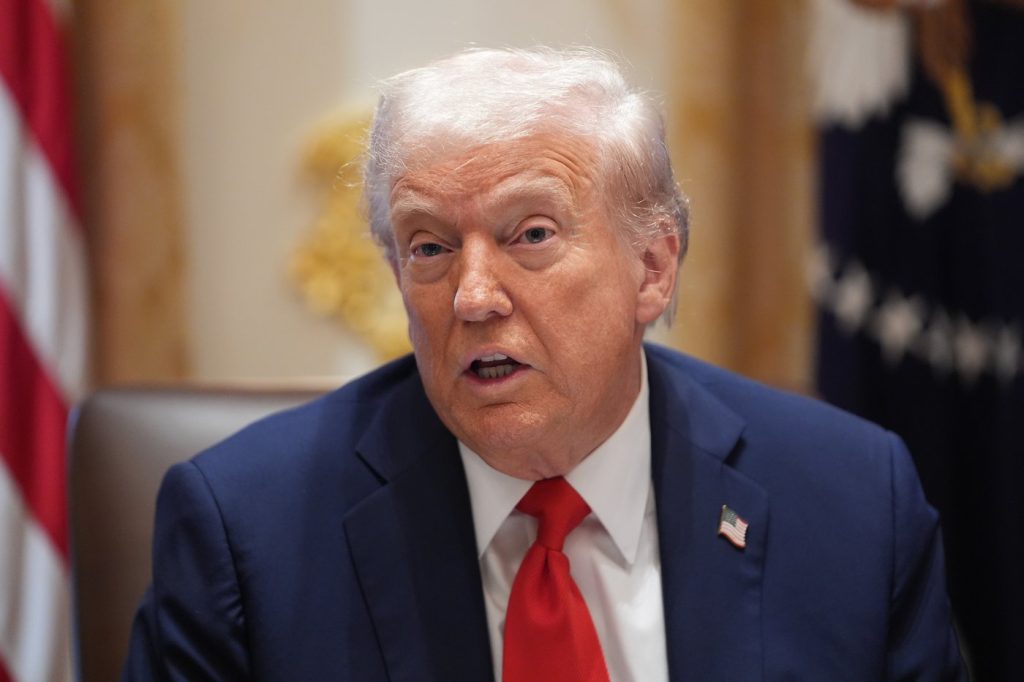WASHINGTON (AP) - President Donald Trump was not awarded the Nobel Peace Prize on Friday, despite efforts from his fellow Republicans, various international leaders, and notably, himself. The Norwegian Nobel Committee chose to honor opposition activist María Corina Machado of Venezuela instead, recognizing her "tireless work promoting democratic rights for the people of Venezuela and for her struggle to achieve a just and peaceful transition from dictatorship to democracy."
Throughout his presidency, Trump has openly expressed his desire for the prestigious accolade, particularly as he claims credit for resolving conflicts around the world. Recently, he voiced skepticism about whether the Nobel committee would grant him an award, stating, "They’ll have to do what they do. Whatever they do is fine. I know this: I didn’t do it for that. I did it because I saved a lot of lives."
Although Trump received multiple nominations for the Peace Prize, many were submitted after the February 1 deadline for the 2025 award, which fell shortly after he commenced his first presidential term. Notably, his name was nominated by Republican Rep. Claudia Tenney from New York in December 2023 for his role in brokering the Abraham Accords, which normalized relations between Israel and several Arab nations in 2020.
Trump and his supporters are likely to view the Nobel Committee's decision as a deliberate slight, especially in light of his efforts to mediate peace agreements in the ongoing Israel-Hamas conflict. The peace prize, first awarded in 1901, aims to encourage ongoing peace efforts, as outlined by Alfred Nobel in his will, which stipulates that the award should go to individuals who have done the most to promote fraternity among nations, reduce standing armies, and support peace congresses.
To date, three sitting U.S. presidents have received the Nobel Peace Prize: Theodore Roosevelt in 1906, Woodrow Wilson in 1919, and Barack Obama in 2009. Additionally, Jimmy Carter was awarded the prize in 2002, two decades after his presidency concluded, while former Vice President Al Gore won in 2007. Trump has often criticized Obama's award, alleging that he won it "for doing nothing" and accused him of harming the country.
Trump often cites the end of seven wars as a justification for his claim to the Nobel Prize, though many of these conflicts were tensions rather than outright wars, and his involvement in de-escalating them is disputed. Presently, while there is hope for a resolution between Israel and Hamas, the broader ceasefire remains uncertain, particularly concerning how Hamas will disarm and the future governance of Gaza. Additionally, the ongoing conflict between Russia and Ukraine shows little sign of resolution, despite Trump’s assertion that he could end it in one day, a comment he later clarified was made in jest.
Trump also invited Russian President Vladimir Putin to a summit in Alaska aimed at peace efforts, omitting Ukrainian President Volodymyr Zelenskyy, but the meeting yielded no significant agreements as the conflict continues. As he seeks peaceful resolutions abroad, the political climate in the U.S. remains deeply polarized. Trump has initiated what he hopes will be the largest deportation program in American history and has been accused of weaponizing government entities against his political adversaries.
He has moved to withdraw the U.S. from the Paris climate agreement, thereby complicating global efforts to combat climate change. His trade policies have sparked global trade wars, often using tariffs as a means to coerce other nations and businesses into compliance. Moreover, Trump has leveraged presidential war powers to combat drug cartels that he has identified as unlawful combatants.
The list of Nobel Peace Prize nominees is confidential, but nominators are permitted to disclose their submissions. Detractors of Trump speculate that his nominations are orchestrated by supporters and foreign leaders not out of genuine belief in his qualifications but as a strategy to retain favor with him. Others who nominated Trump after the prize deadline include Israeli Prime Minister Benjamin Netanyahu and officials from Cambodia and Pakistan, all citing his purported contributions to conflict resolution in their respective regions.










